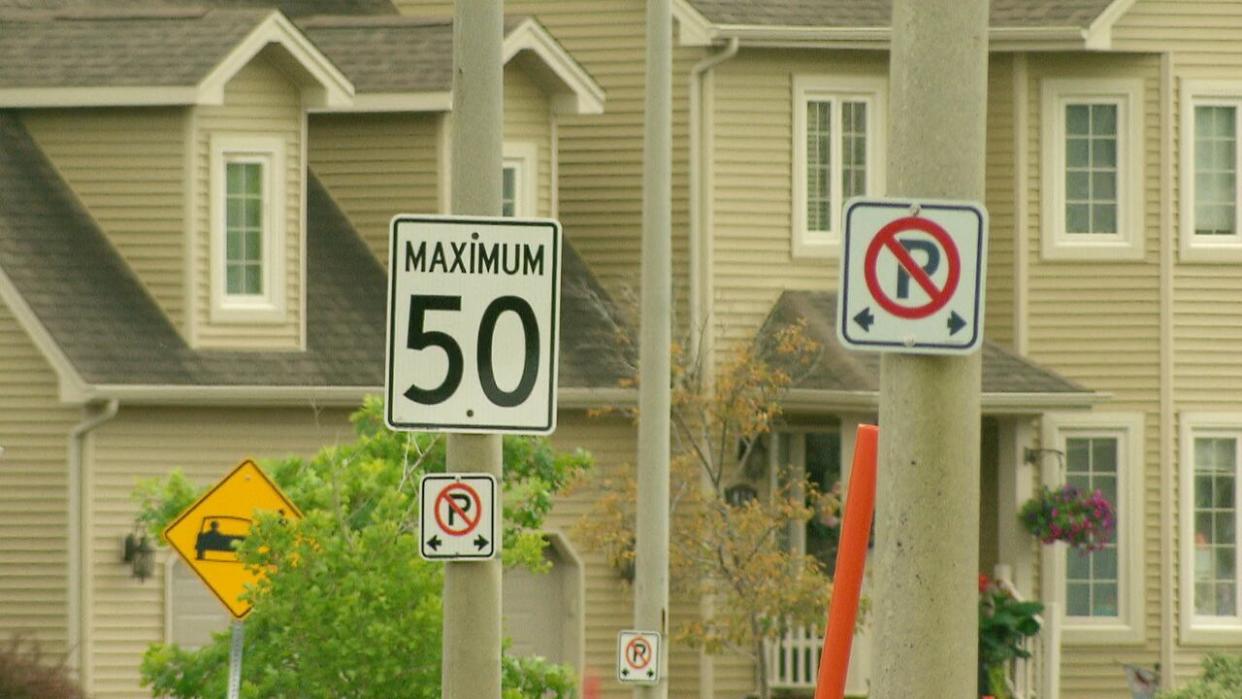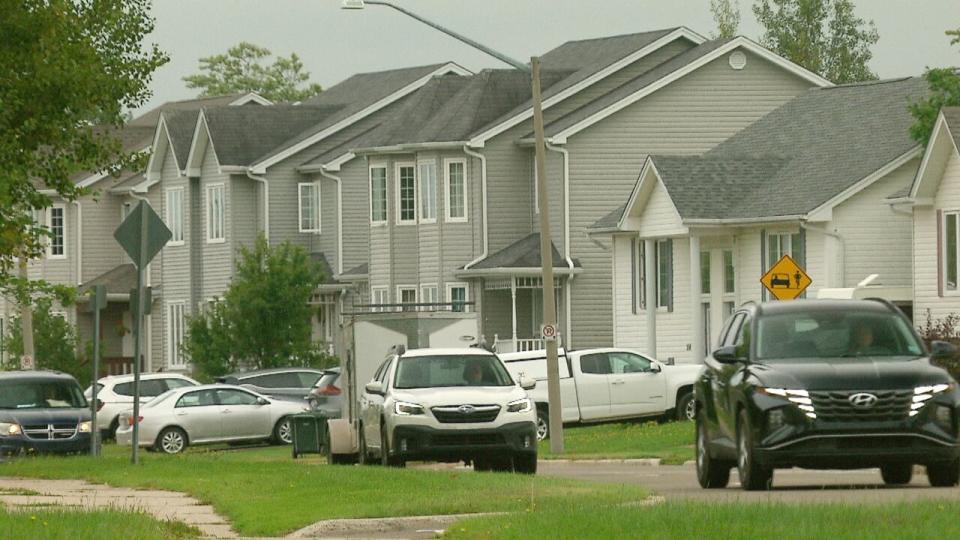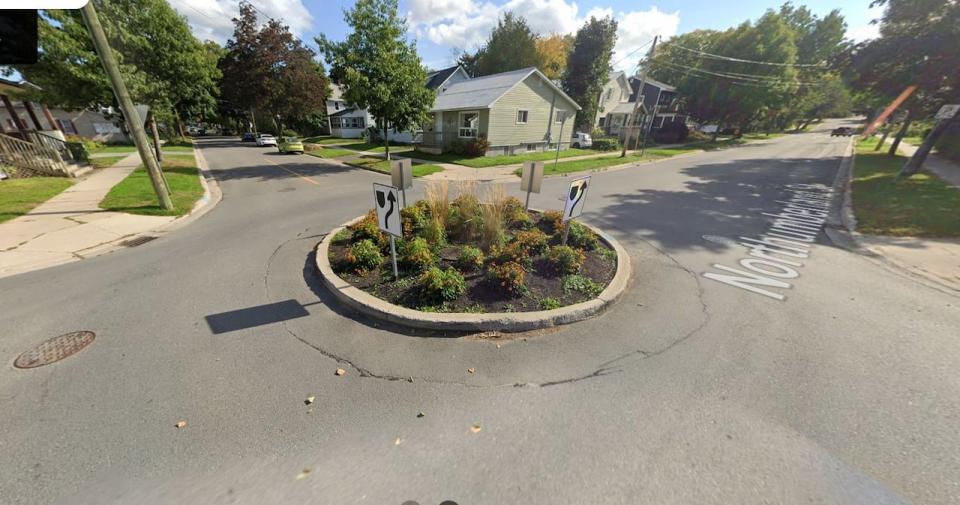Moncton weighs how to slow traffic without a lower speed limit

Moncton is considering a new municipal policy aimed at slowing down drivers on city streets, but has ruled out a blanket speed limit reduction in residential areas.
René Lagacé, Moncton's director of engineering, said the policy will help the city decide what streets to tackle first.
The policy does not specify what measures should be installed on which streets. Instead, it would see streets given a rating using data on vehicle speed, crashes, injuries and fatalities.
A street's rating would determine whether it's a candidate for traffic calming measures.
"It's not opinion, it's not popularity, it's not wealth of the neighbourhood or so on, it's by these specific criteria," Lagacé said of how the rating allows staff and council to explain decisions to the public.

The policy will use a formula to account for speeding, crashes, injuries and fatalities to rank a street to determine if it needs traffic calming measures. (Pierre Fournier/Radio-Canada)
Councillors unanimously voted in favour of the policy at a committee meeting Monday. It still requires final approval at a future council meeting.
Examples of measures the city may take to slow drivers ranged from putting up signs showing a driver's speed to physically narrowing the lane, or installing mini-roundabouts in intersections like in Fredericton.
While the evaluation of whether those measures are needed will in part be prompted by complaints, Lagacé said the city will also consider them when doing roadwork.
The policy also says the city should consider traffic calming measures when new streets are being designed. It calls for fewer long, straight and wide roads.
Other features at the design stage could include raised pedestrian crosswalks and intersections, or mini-roundabouts at intersections.

Mini-roundabouts like this one on Northumberland Street in Fredericton were suggested as one option for Moncton streets. (Google Maps)
A staff report to council says an online consultation this year had more than 600 responses. More than half were willing to see traffic calming measures installed on their street, though it depended on what was being considered.
The staff report says emergency services and Codiac Transpo were consulted.
Moncton previously studied traffic calming measures 11 years ago, but the staff report says it didn't adopt a policy or budget money to install the measures.
The motion given tentative approval Monday calls for yearly funding.
Test on Purdy, Pleasant
Moncton's 2024 budget has $200,000 to test traffic calming measures on two streets.
On Purdy Avenue in the city's central area, proposed steps include a sign showing the driver's speed, raising the level of the intersection with Lorne Street, a painted centre line that visually narrows the lane and on-street parking separated from traffic by "vertical delineators."
On Pleasant Street in the east end, the steps planned include speed cushions or speed bumps, signs showing the driver's speed, on-street bike lanes and elevated crosswalks.
Moncton hired consulting firm EXP to study traffic calming and help prepare the policy.
Peter Lougheed, a road safety specialist with EXP, told council they should not adopt a blanket speed reduction in residential areas.
Several cities in Canada have reduced their speed limits after contentious debates to reduce the risk of injury and death when someone is hit by a vehicle.
"This is another controversial one," Lougheed said.
Lougheed said people aware of the change tend to go slower and as a result the average speed drops. But others don't, and problems ensue.
"You get tailgating of people that are riding up behind the slow driver, potentially passing where they're not supposed to, and you get a lot of rear-end collisions," Lougheed said, adding a blanket reduction also requires extra policing.
Instead of a blanket reduction, the policy suggests some roads already designed to be slower or that have traffic calming measures installed.


